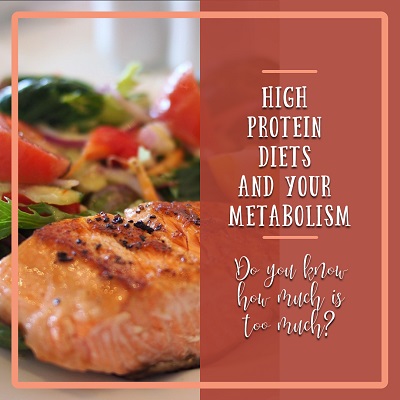 A metabolic process is at work in all living organisms. It is the very complex and interconnected group of processes and functions which allows an organism to live. Thanks to fad diets and the latest, greatest exercise programs, many people think of metabolism as being solely responsible for whether or not you are overweight or obese, as opposed to being slim and trim.
A metabolic process is at work in all living organisms. It is the very complex and interconnected group of processes and functions which allows an organism to live. Thanks to fad diets and the latest, greatest exercise programs, many people think of metabolism as being solely responsible for whether or not you are overweight or obese, as opposed to being slim and trim.
This is an unfortunate over-simplification of a very involved process.
Your metabolism dictates how healthy you are in a number of ways, not just whether or not you are overweight, underweight or enjoy a naturally healthy body weight.
From heart health to muscle strength, how healthy and young looking your hair and skin are, and whether or not your respiratory system is working properly, your metabolism is largely involved.
Simply put, the metabolic process going on inside you right now is responsible for just about everything that keeps you living.
Likewise, protein is needed by every cell in your body. Protein in your diet is directly related to how healthy your entire body is, down to the cellular level. If protein is so important for influencing both your metabolism and your health, wouldn’t it just make sense to eat extremely high levels of protein?
How High Protein Levels Affect Your Metabolism, and Your Health
There are many studies which show high protein diets can lead to significant and lasting weight loss if you are overweight, and also provide other benefits. In the United States, the Dietary Reference Intake or DRI says you should be eating 0.8 grams of protein (0.36 g per lb) for every kilogram you weigh, on a daily basis.
If you are basically sedentary and weigh 150 pounds, this means you should be eating 54 g of protein each day. If you weigh 200 pounds, that number rises to 72 g of protein. Similar protein requirements are suggested by other national health authorities.
Is More Protein Better?
Does cranking up this level of protein positively or negatively affect your metabolism?
One study showed that when you eat more than the recommended amounts of protein on a regular basis, you can reduce cravings and obsessive thinking about food by as much as 60%. This is because protein is absorbed by your body very slowly, especially when compared to rapidly digestible simple carbs.
The more protein you eat, especially when you enjoy protein at every meal, the more your body feels full throughout the day. This can lead to you eating less food, which naturally promotes a healthier weight maintenance.
Also, a high-protein diet coupled with regular exercise promotes increased muscle mass. The more muscle you have, the more effectively you burn energy, a key component of metabolic rate (which is what most people mean when they refer to ‘metabolism’). The more muscle mass you have and the more active you become, the more energy you require to fuel that muscle tissue, even at rest.
When the ratio of muscle tissue (versus fat tissue) increases, your metabolism automatically cranks up and functions at a higher rate, to process the food you eat, combine it with oxygen, and turn it into useable energy.
Since muscle tissue needs a lot more energy than fat, when you enjoy a high-protein diet and stay physically active (to maintain muscle mass), you increase the amount of energy you burn even when you are sitting and doing nothing at all.
The energy expenditure used by your body at rest is known as your ‘basal metabolic rate’, and increasing this is what is what is meant by speeding up or increasing your metabolism.
How Much Is Too Much?
While health authorities understand that everyone is different, most agree that protein consumption should be kept under 2.2 g per kilogram (1 protein g per lb) of body weight.
If you are sedentary and not very active, aim for a little more than 0.8 grams of protein for every kilogram (0.36 g per lb) of body weight. The more active you are, the more protein your body needs.






